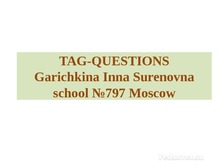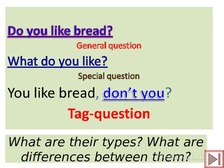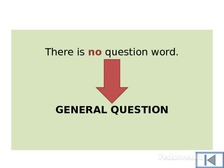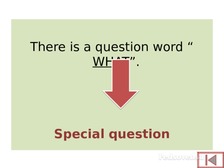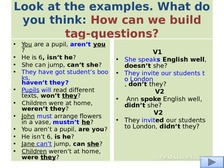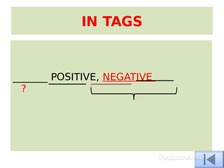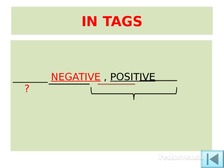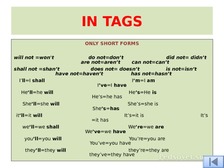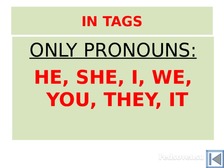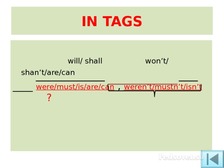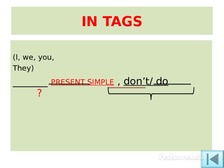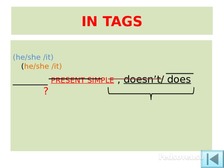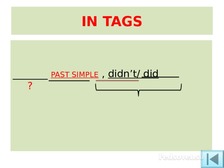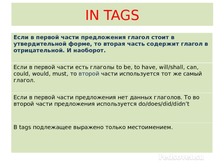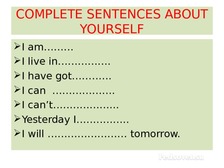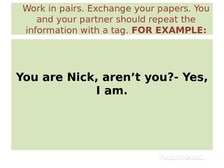Слайд 6
Look at the examples. What do
you think: How can we build
tag-questions?
•
•
•
•
•
•
•
•
•
•
•
You are a pupil, aren’t you
?
He is 6, isn’t he?
She can jump, can’t she?
They have got student’s boo
ks,
haven’t they?
Pupils will read different
texts, won’t they?
Children were at home,
weren’t they?
John must arrange flowers
in a vase, mustn’t he?
You aren’t a pupil, are you?
He isn’t 6, is he?
Jane can’t jump, can she?
Children weren’t at home,
were they?
•
•
•
•
V1
She speaks English well,
doesn’t she?
They invite our students t
o London
, don’t they?
V2
Ann spoke English well,
didn’t she?
V2
They invited our students
to London, didn’t they?
